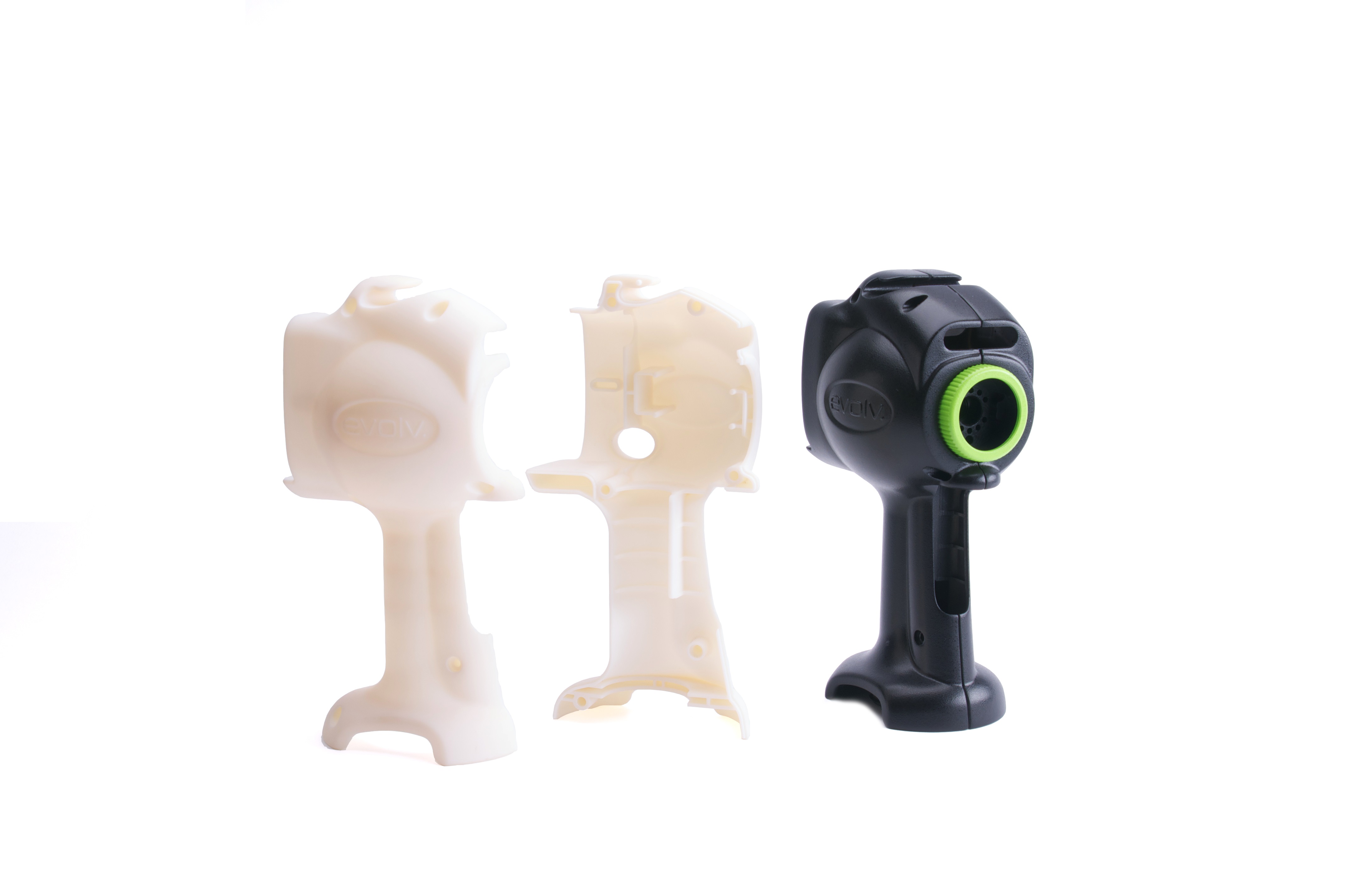Urethane is an incredibly versatile plastic that offers a full range of performance specifications. This material can be chosen for its strength, resistance to impact, ability to withstand heat, transparency, capability to create complex or detailed parts, as well as its capacity to prevent denting.
Cast urethane also it allows for the same finish, color, tolerances and material properties as injection molded parts — but at a faster and less expensive rate.
While there are many types of urethanes, two that offer a great deal of flexibility are urethane/polyurethane and liquid silicone rubber.
Urethane/Polyurethane
Casts made from polyurethane are typically referred to as “urethanes.” They’re commonly used to make everything from flexible, highly resistant foam seating pads to wheels and tires that are durable and elastomeric, such as the ones you see on shopping carts and escalators. Urethane is also used to make intricate parts for electronics.
One of the main benefits of using urethane/polyurethane for casting is that it allows parts without draft, or those with undercuts, to be reproduced. This means that it can be used for low-volume production parts, concept models and prototypes with a fast turn-around time. Different materials can be used in each cast as well, so a design can be tested using several properties, which gives the design team more insight into a product’s viability. This capability might explain why it’s used everywhere.
Liquid silicone rubber
When the challenge is to develop a soft, pliable part or prototype, liquid silicone rubber often provides the solution.
Using liquid silicone rubber in the cast urethane process is fast and reliable. It makes it possible to create several parts or prototypes out of a single pattern. Furthermore, the parts and prototypes that can be made are virtually limitless — grommets, stoppers, tubes and shock mounts can all be manufactured using liquid silicone rubber.
Yes, with cast urethane, nothing seems impossible. It’s quicker, less expensive and it offers advantages for low-volume production. If any of these qualities can benefit your next project, contact PDS today for a “fast quote.

